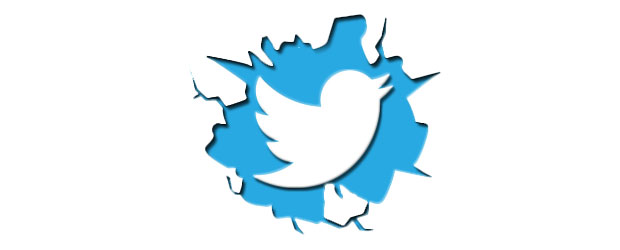The popular social media platform, Twitter, is known for its open and mostly uncensored style. Millions of people post tweets a day – everything from funny one-liners to serious ‘live-tweeting’ of events happening to them. The social media guru has a fairly lenient policy on what people can and cannot post. However, they took a drastic leap when they decided to collaborate with the FBI in an attempt to combat terrorism.
This past week marked a major play against cyber-terrorism with Twitter removing thousands of accounts linked to terror groups. Over 125,000 accounts were removed from their database due to terrorist links or connections since mid-2015.
Many of the accounts closed were found to be posting messages to the world wide web to either recruit people to their cause or promote acts of terror. In this attempt to stop ISIS from gaining more hate-fueled traction, Twitter has opened its employees to numerous threats from other members whose accounts remain active. The terrorist group was not pleased with their major source of information sharing being taken from them.
We had the opportunity to speak with Rabbi Cooper, the Associate Dean of the Simon Wiesenthal Center, regarding this attempt to remove ISIS accounts from Twitter. The Simon Wiesenthal Center focuses on anti-hate in all forms but is currently focusing a lot of effort into the online market. According to Rabbi Cooper, ISIS has one of the most effective marketing and recruiting strategies around. They were sending out around 200,000 tweets a day! Rabbi Cooper explained that any form of hate speech, whether terroristic or focused against one group of people, will never be fully eradicated but we can make strides to combat it. He thinks that while social media should remain a network for open exchange of information, the social media companies should take a more active stand in enforcing their policies.
When we click ‘I Agree’ on any sign-up page, we are effectively signing a contract. Breaking those rules should have a penalty attached to it. Twitter has made great steps toward becoming a more accountable parent company, but still has a long way to go. Rabbi Cooper expressed that Twitter should take a more forward approach so that “people who abuse or utilize their system to promote terrorist violence can’t use their platform in the future.” In effect, he is making it clear that even if one account is deactivated, another should not be able to pop up in its place.
Rabbi Cooper was very positive about the steps being taken by Twitter and other social media groups but cautions that more must be done to take on cyber-terrorism and hate speech. One major source of concern is the hashtags available to tag each tweet. Rabbi Cooper feels that Twitter, as a company, should be able to go in and review each hashtag and remove or block any that promote hate or violence. This won’t deter negative tweets, but it will inhibit the ability to categorize them as such with hashtags.
As for all other minority groups, there is help for us too! He says that regardless of who the hate speech is directed to, there is a simple way to report it to the Simon Wiesenthal Center for review. Simply sending the link to information@wiesenthal.com will prompt them to check it out and review it. If it does promote hate speech, they will then contact the company and work with them to get it removed. This group will stop at nothing to provide the support needed to make an effective change in how social media speech impacts us all. From all of us here at Queer Voices, we thank the Simon Wiesenthal Center for all that they do and have yet to do. It’s groups like these that are helping to pave a path towards acceptance for all people, regardless of religion, race, sexual orientation, or gender.





